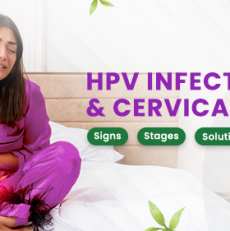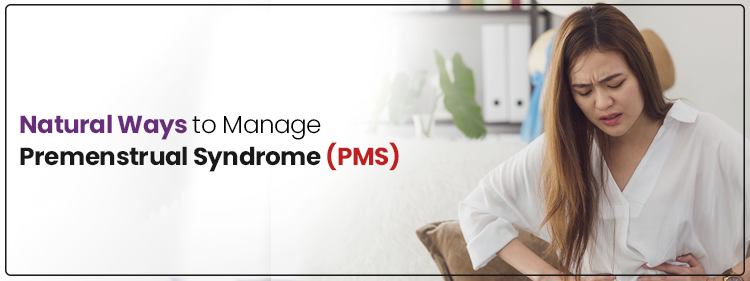
May 9, 2025
HPV Infection and Cervical Cancer: Signs, Stages, and Solutions.
May 2, 2023 - admin

Premenstrual syndrome (PMS) is characterized by physical and emotional symptoms in the days or weeks leading to menstruation. It's important to remember that you have the power to take control of your life and manage the challenges of premenstrual syndrome. With the right treatments and lifestyle adjustments, you can effectively reduce and alleviate the signs and symptoms of PMS, allowing you to lead a fulfilling and balanced life.
The list of potential signs and symptoms of premenstrual syndrome is long, but most women only experience a few of these problems.
Breast tenderness or swelling
Bloating or fluid retention
Fatigue or tiredness
Headaches or migraines
Joint or muscle pain
Changes in appetite or food cravings
Sleep disturbances (insomnia or excessive sleepiness)
Mood swings
Irritability or anger
Anxiety or nervousness
Depression or sadness
Increased emotional sensitivity
Crying spells
Difficulty concentrating or focusing
Increased appetite or food cravings, particularly for sweet or salty foods
Changes in libido (sex drive)
Social withdrawal or isolation
Decreased interest in usual activities or hobbies
Poor concentration or forgetfulness
Restlessness or feeling "on edge."
Eating a well-balanced diet can significantly impact PMS symptoms. Focus on incorporating nutrient-rich foods, including:
Opt for whole grains, such as brown rice and quinoa, which can stabilize blood sugar levels and improve mood swings.
Increase your intake of antioxidant-rich fruits and vegetables. Particularly, bananas and spinach, which are high in vitamin B6, may reduce bloating and mood swings.
Include sources of healthy fats, like avocados and nuts, which can help regulate hormone production and reduce inflammation.
Regular physical activity can alleviate PMS symptoms by boosting mood and reducing bloating and cramps. Consider incorporating exercises such as walking, jogging, yoga, or swimming into your routine.
Stress can exacerbate PMS symptoms. Explore stress management techniques to promote relaxation and emotional well-being, such as:
Practicing mindfulness techniques like Mediation to reduce stress and promote a sense of calm would be best.
It would be best to prioritize quality sleep by establishing a regular sleep schedule and creating a relaxing bedtime routine to get good sleep.
Take time out to enjoy activities such as reading, listening to music, or spending time in nature to reduce stress.
Staying hydrated is crucial during the menstrual cycle. Drinking plenty of water and herbal teas would be best to reduce bloating and flush out toxins.
Some herbal supplements, such as chaste berry, evening primrose oil, and ginger, have shown the potential to reduce PMS symptoms. However, before starting any herbal remedies, consult with a healthcare professional. We make sure that the products are safe and appropriate for your use.
A heating pad or warm baths can help alleviate abdominal discomfort, muscle cramps, and lower back pain associated with PMS.
Nonsteroidal anti-inflammatory drugs (NSAIDs) like ibuprofen or naproxen sodium can be taken to reduce pain, bloating, and breast tenderness. However, consult with a healthcare provider before using any medication.
PMS (Premenstrual Syndrome) is a common condition that affects many women before their menstrual cycle. While the exact cause of PMS is not fully understood, hormonal fluctuations and changes in neurotransmitter levels are believed to play a role.
If PMS symptoms are severe, significantly affecting your daily life, or if you suspect you may have a more severe form of premenstrual dysphoric disorder (PMDD), it is recommended to consult with a healthcare professional for proper diagnosis, guidance, and potential treatment options.
Tags:


Leave a comment